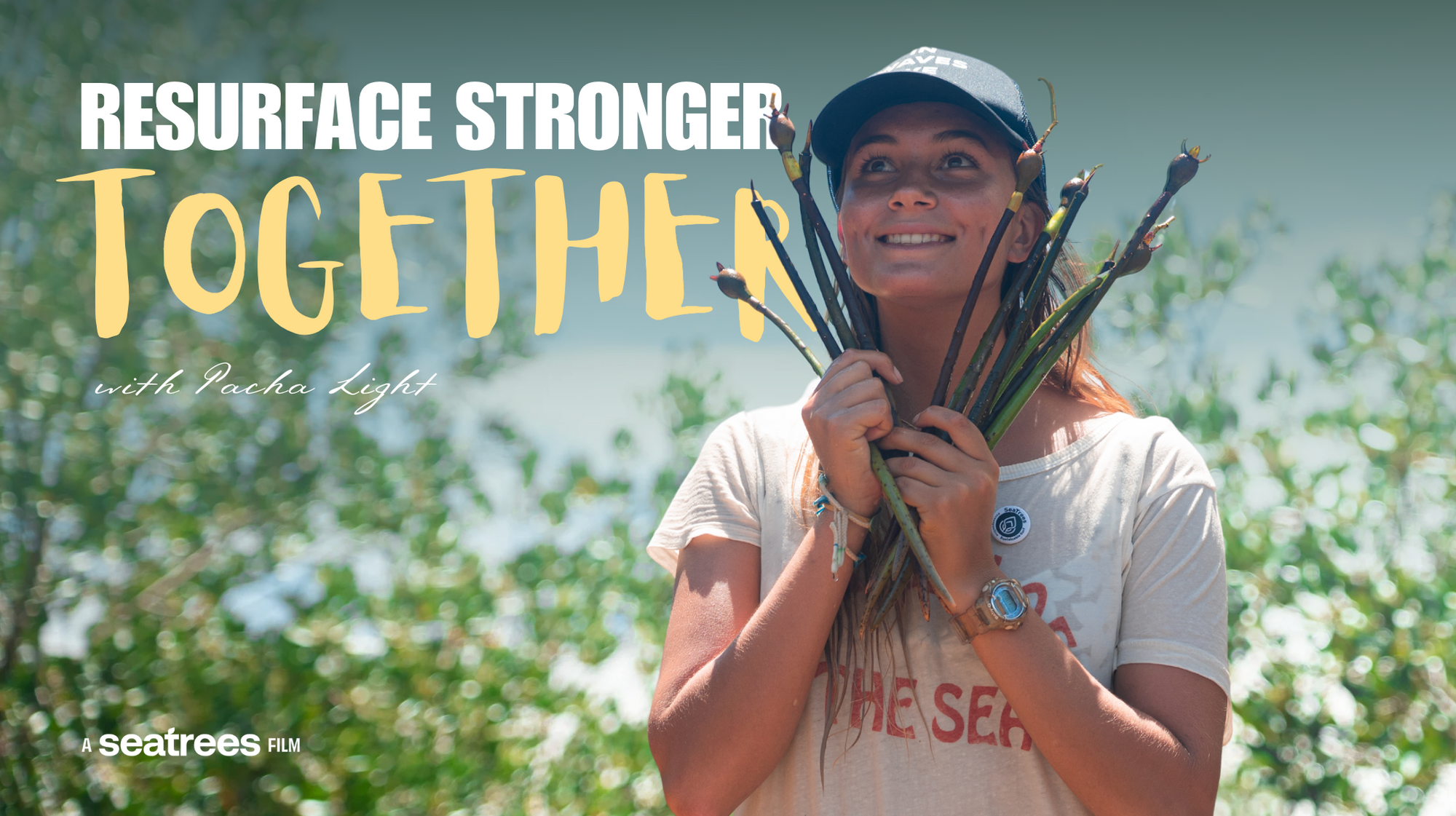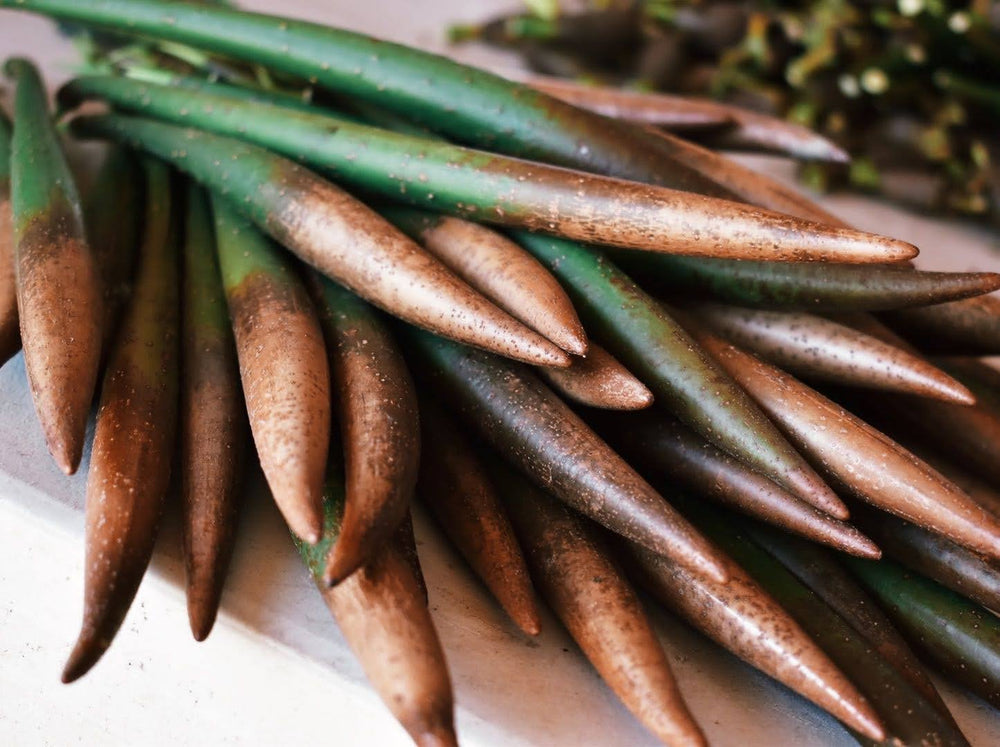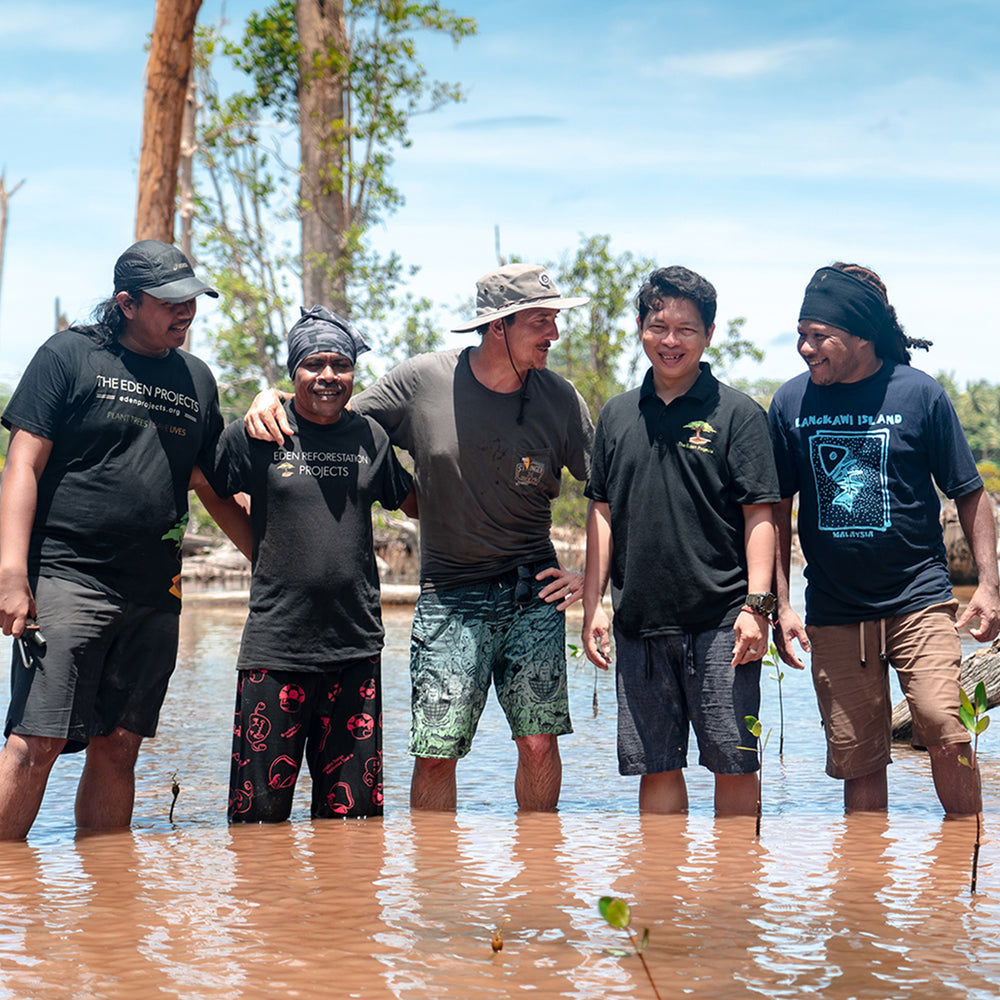
The mangrove restoration process
Mangrove restoration on Padaidori Island follows a structured, tested and straightforward process – comprised of these 8 steps:
1. Our local planting partner first works with all levels of the Indonesian government at the National, Regional, and most importantly, at the Village level (where the primary land ownership/rights is recognised in Indonesia) to secure the authorization agreements needed, as well as the long-term permence for the project site(s).
2. Workers receive intensive training on proper restoration techniques. This is often delivered by workers from other local projects.
3. “Before” photos are taken for each hectare (at the time of first planting) with the Theodolite app showing GPS coordinates and other site identification data.
4. Prior to planting, each worker “harvests” their own supply of appropriate mangrove species propagules/seeds from adjacent healthy remnant mangrove forests. The collected propagules are then recorded and bundled (per person), and held in storage at the village plant nursery until planted. Workers are paid once specific bundles are planted on scheduled communal planting days.
5. The workers first clear the sites of deforestation debris – and plant the appropriate mangrove species within the appropriate sub-ecosystems. Photo documentation after the planting has been completed is used to validate the estimated number of trees planted per daily section.
6. As needed, the workers also replant the propagules that can potentially die-off as a result of periodic crab predation, a severe weather event, etc.
7. Our local planting partner monitors and measures survival rates, growth, health and natural regeneration rates on an annual basis. Photo documentation related to their specific planting sites is provided to SeaTrees to confirm this.
8. Long-term monitoring and guarding of the restored mangrove forest through a seperate “guard fund”, that is created at the very beginning of the restoration efforts. 10% of funding provided by SeaTrees, is set aside into a guard fund that is operated by Eden Projects.
Restoring mangrove ecosystems and supporting local livelihoods
This project restores and protects 46 hectares of highly degraded mangrove forest. Biak Island's mangrove estuaries are 75% deforested. Located in the center of the Coral Triangle, the reefs around the Biak Island Region have some of the highest levels of biodiversity on the planet.
SeaTrees has worked with Eden Reforestation Projects since June 2019, starting with a small plot of 60,000 mangrove trees on the main island of Biak, Indonesia. SeaTrees quickly maxed out the planting site at Mnurwar and in January 2020 began planting mangrove trees on the neighboring island of Padaidori. Just a few months later in October 2020, the project expanded to a second planting site on Padaidori.
By the end of this year, SeaTrees will have planted just over 700,000 mangrove trees with Eden Reforestation Projects in the Biak Island Region.
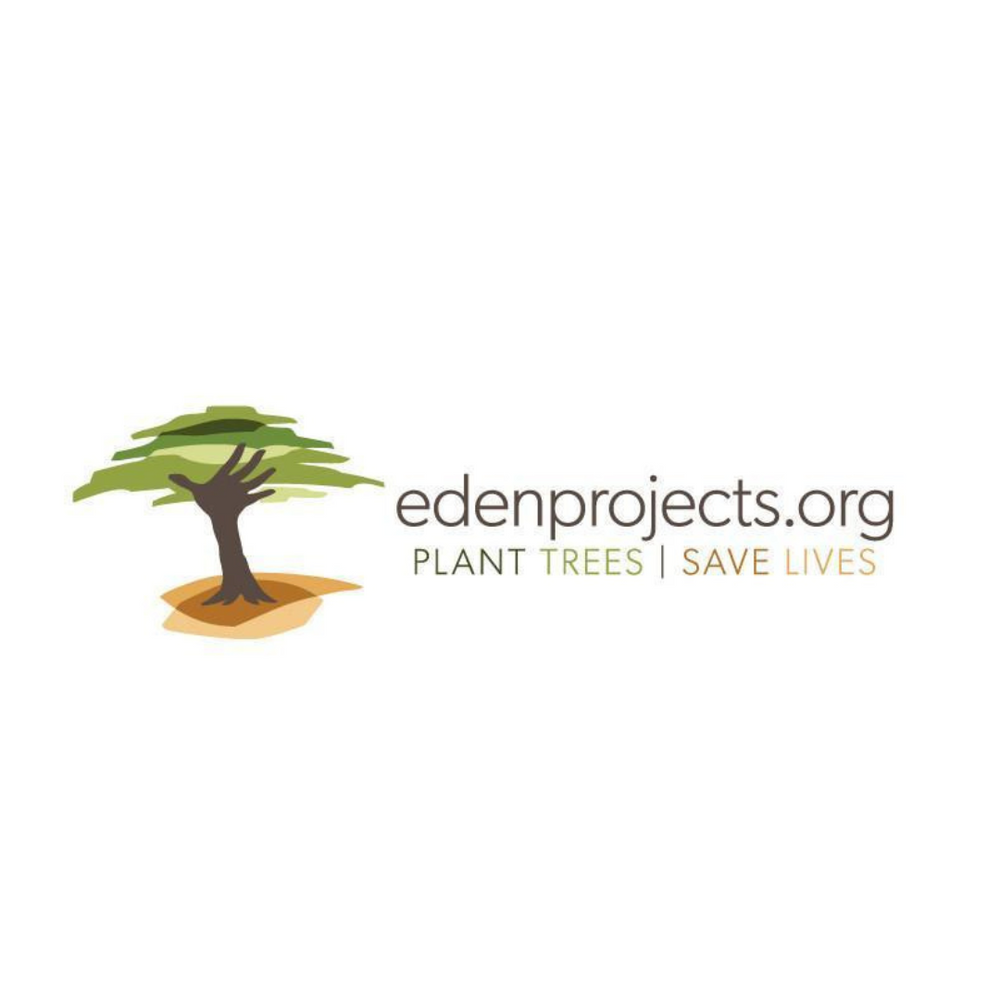
Eden Reforestation Projects
SeaTrees has partnered with the Eden Reforestation Projects to fund local villagers on Padaidori Island in their effort to restore, replant, and protect the area’s unique and vital forest systems.
A little further reading...
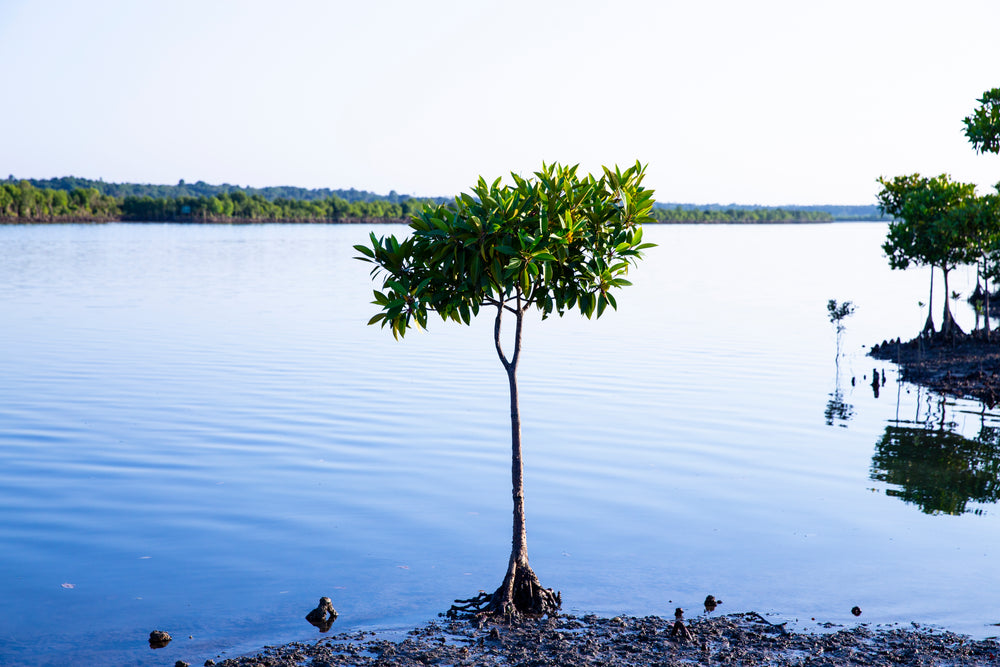
Preventing erosion and providing marine habitat
Each mangrove tree planted sequesters approximately 680 lbs [308kg] of CO2 over its lifetime.
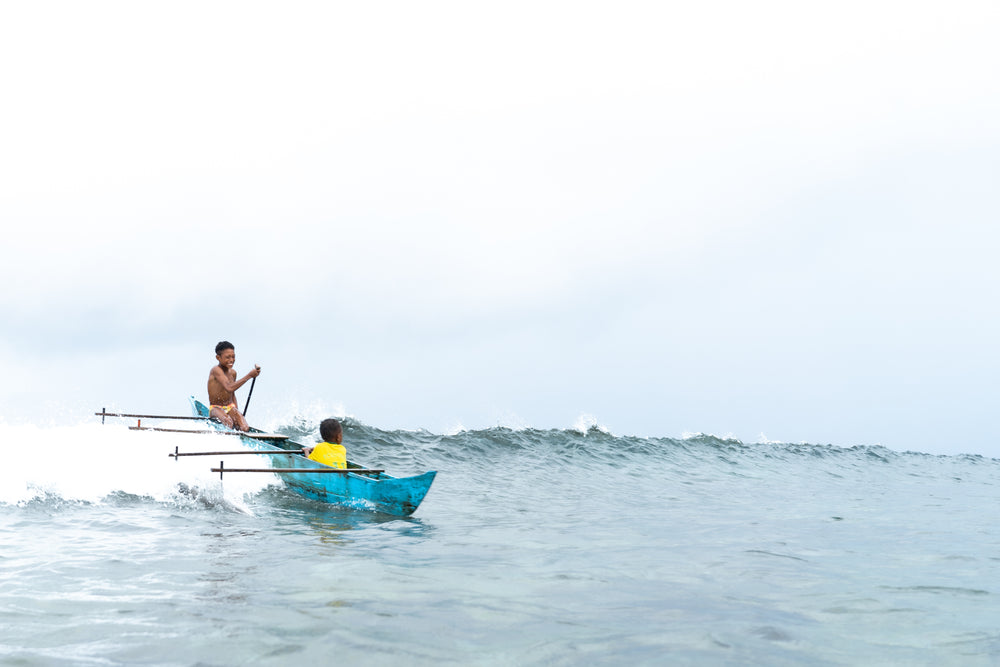
Sustainable Development
This project provides long-term employment for the local community. This in turn drives other Sustainable Development benefits produced by the project.
Assuring trees deliver ongoing impact
In addition to ongoing evaluation provided by Eden Projects, we assess every restoration site in person. Sustainable Surf / SeaTrees team members visit each planting site we support during the initial planting period to document and verify the process, and progress.
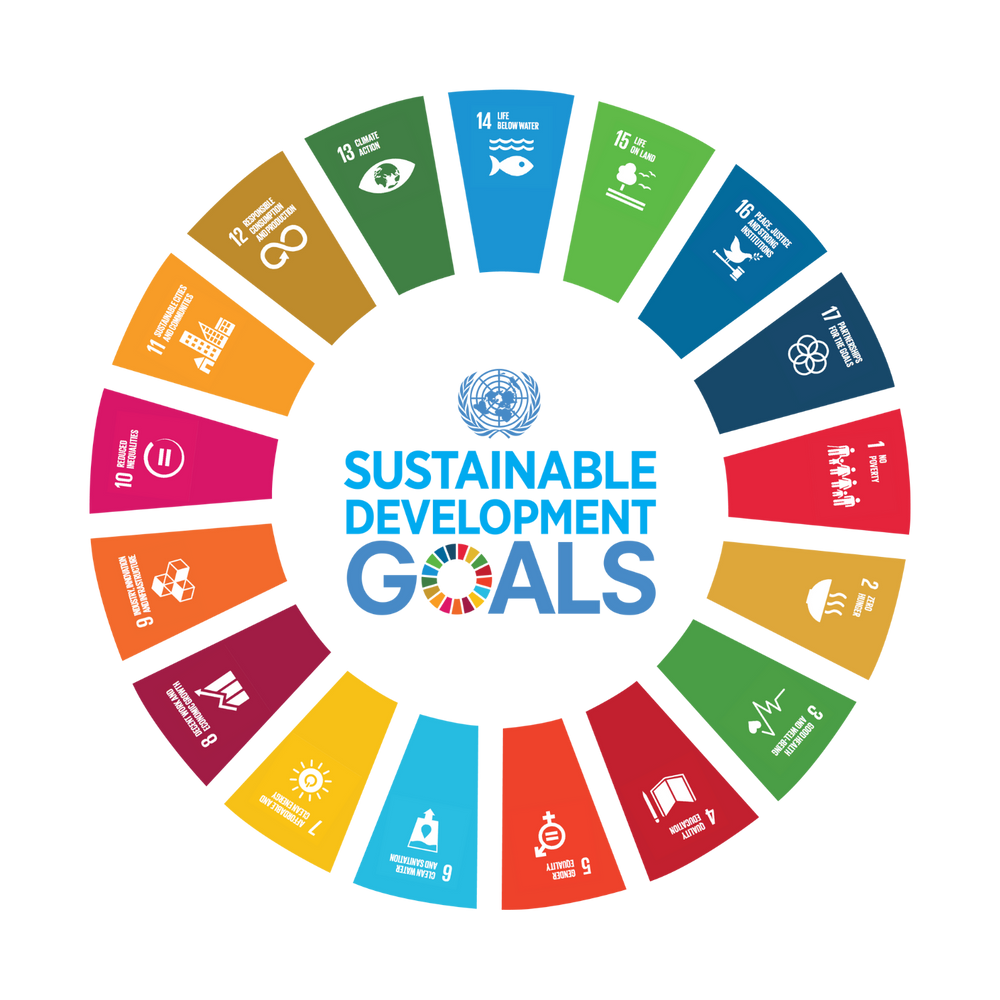
Alleviating Poverty Creates Sustainable Benefits
This project provides long-term employment and cash income for the local community. This in turn drives all of the other Sustainable Development benefits produced by the project.
Key Impact Metrics
Every 30 mangrove trees planted in this project:
- Creates 1 day of living-wage employment for local community members, helping to support 55 families
- Provides resources for local education
- Protects local villages from storm surges and sea-level rise
- Serves as critical nursery grounds for fish and shellfish, and increases local marine productivity
- Has the potential to sequester more than 9 metric tons of carbon dioxide of the 25 year life of the trees
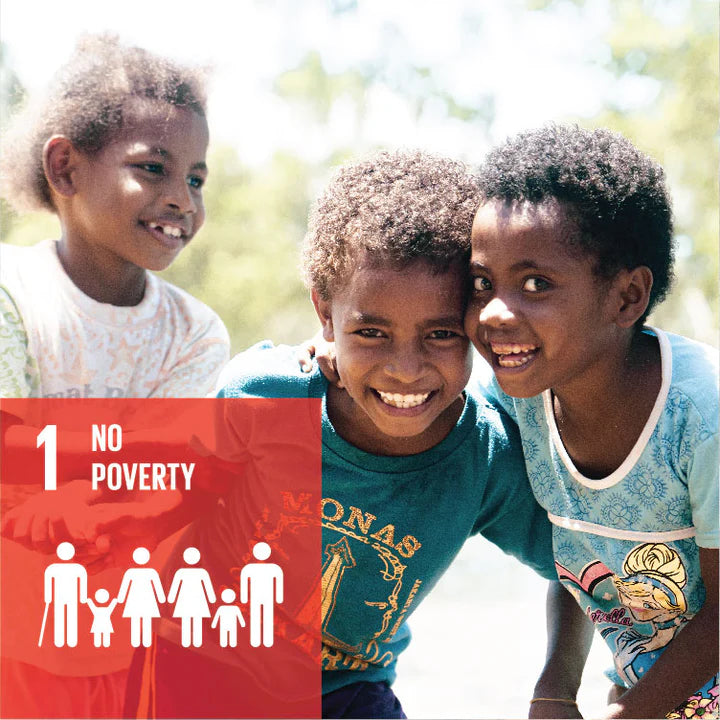
No Poverty
There were few cash-paying jobs on Padaido Island prior to the planting project. 55 people are now employed as planters and 'forest guards'.
This steady income helps to lift 55 families out of poverty and the bottom 40% of income levels in Indonesia.
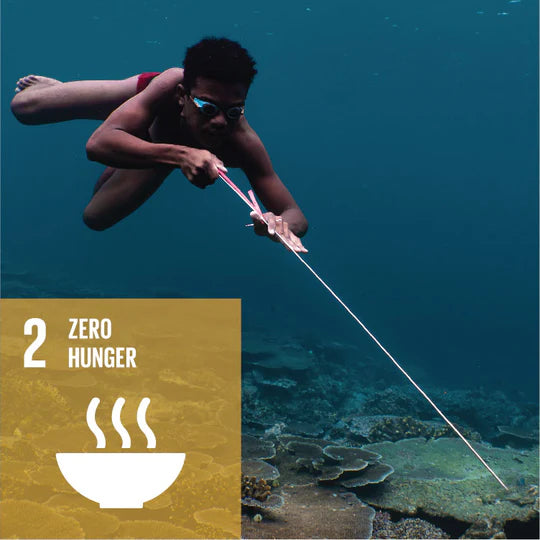
Zero Hunger
Before this project started, villagers relied primarily on subsistence food sources. These can be unreliable and are threatened by natural disasters and climate change.
The community now the ability to purchase a more diverse food supply, including yams, sweet potatoes, taro, green vegetables, fruit, to supplement what they can grow or catch.
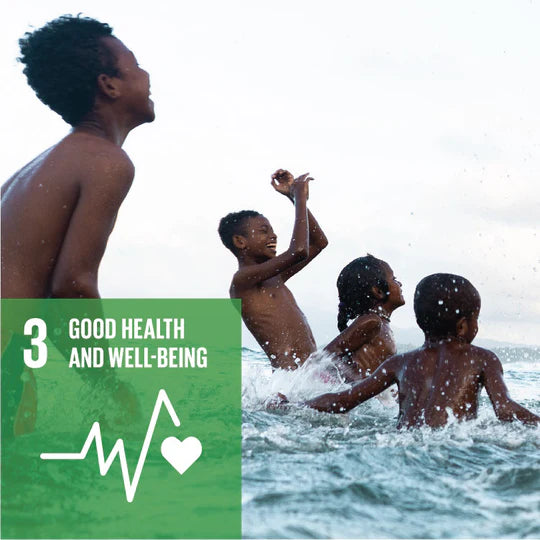
Good Health
There is no national health coverage in the region; medical services are paid for in cash.
Families are now able to purchase medicine and visit medical professionals, which improves quality of life and can save lives.
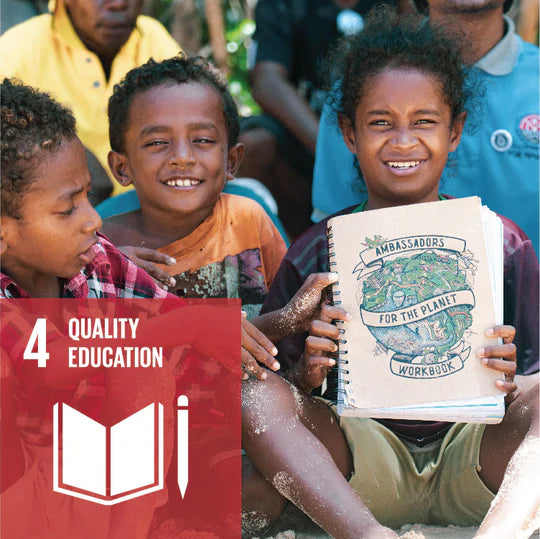
Quality Education
Consistent education is a challenge on the remote islands of the Biak region.
Long term employment enables families to make longer term investments into their children's education, including school fees, textbooks, and uniforms.
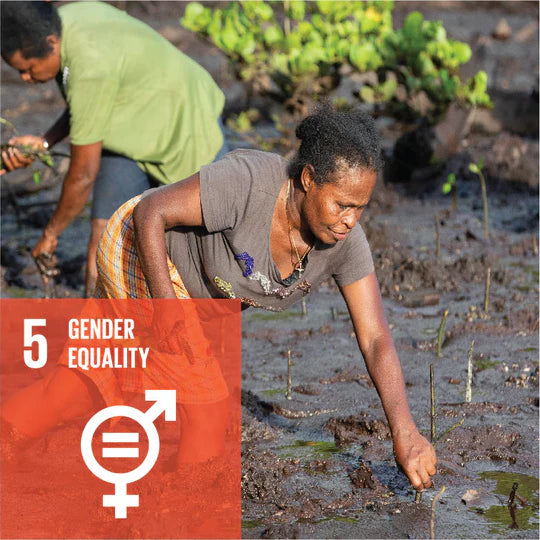
Gender Equality
Gender equality is often heightened in communities where access to resources, wealth and education is limited.
This project hires a minimum of 50% women for all planting jobs and female workers are often placed in managerial positions.
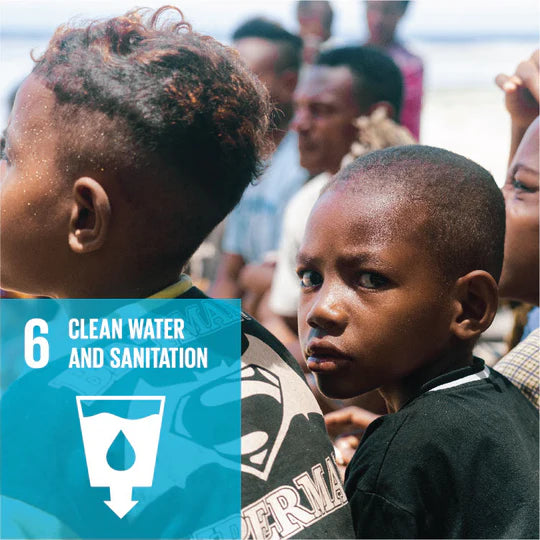
Clean Water
Fresh water is a significant challenge on remote islands, where groundwater supplies do not exist.
Cash income allows the purchase of rainwater catchment barrels for households. This is a critical source of fresh water for the families on the island.
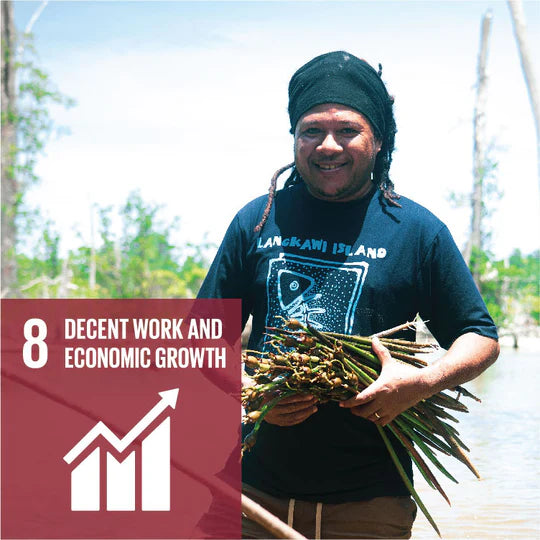
Decent Work
Decent work means opportunities for everyone to get work that is productive and delivers a fair income, security in the workplace, social protection for families, and better prospects for personal development and social integration.
This project ensures that men and women employees receive equal pay for the same work. People with disabilities are hired where possible.
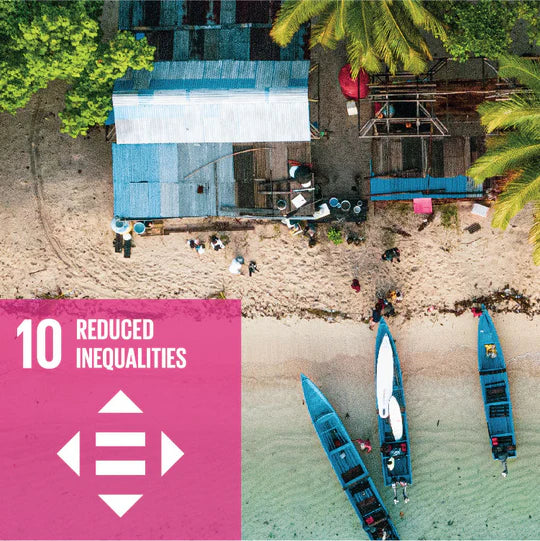
Reduce Inequality
Inequality within and among countries is a persistent cause for concern. Padaido Island is a very remote corner of Indonesia and populated by ethnic minorities.
Tree planting jobs lift employees out of the bottom 40% of income for the country of Indonesia.
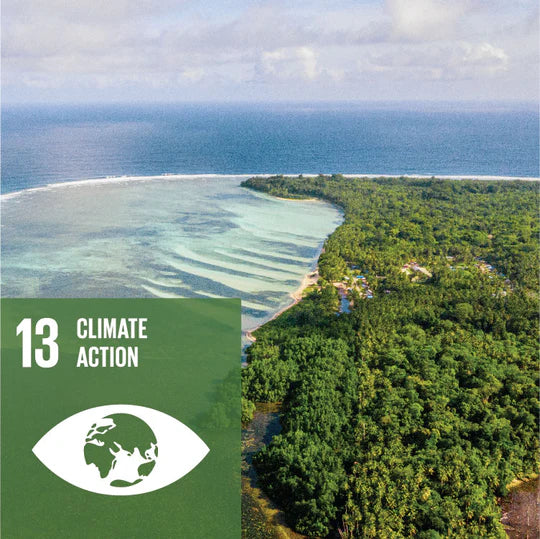
Climate Change
Climate change is a global issues that threatens all societies. Carbon sequestration in blue carbon ecosystems is one of the most effective methods to fight climate change.
At the SeaTrees site on Padaido Island, 225,000 mangroves trees are planted each year. This will sequester 70,000 tons of CO2 over the 25-yr lifetime of the trees.
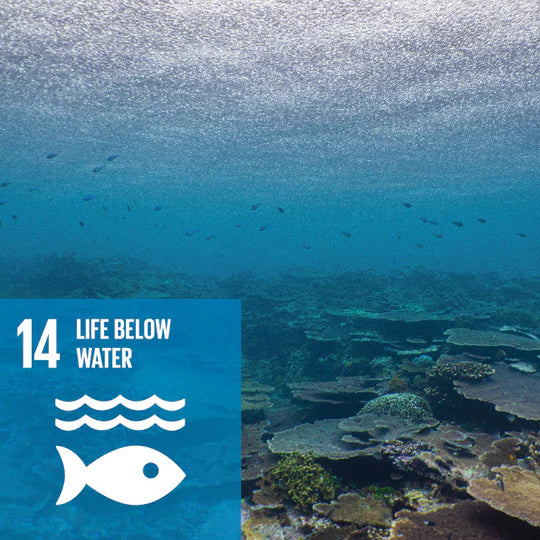
Life Below Water
The majority of the mangrove forests on Padaido Island were wiped out by a tsunami in 1996. This affects coastal ecosystems because reefs are much healthier with a nearby mangrove forest, which serves as critical nursery grounds for fish, shellfish, turtles, and birds.
The restoration of the mangrove forest on Padaido Island is expected to have significant benefits for the local ocean ecosystems.
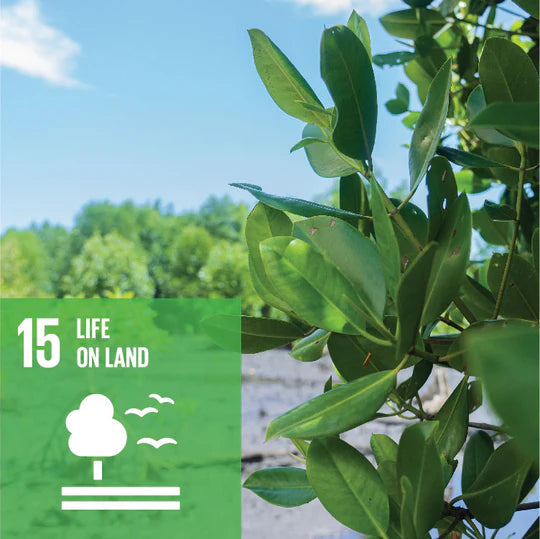
Life on Land
Mangrove forest restoration is critical in an area where 75% of the mangrove forests are degraded. Local villagers become the first line of defense for the restored forests.
Over a span of two years, 600,000 new mangrove trees will be planted on Padaido Island. As the mangrove forest matures, fruit and nut trees will be planted to further diversify the ecosystem and provide food for both humans and animals.

